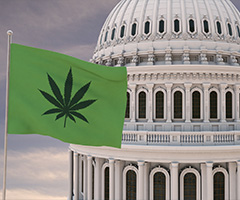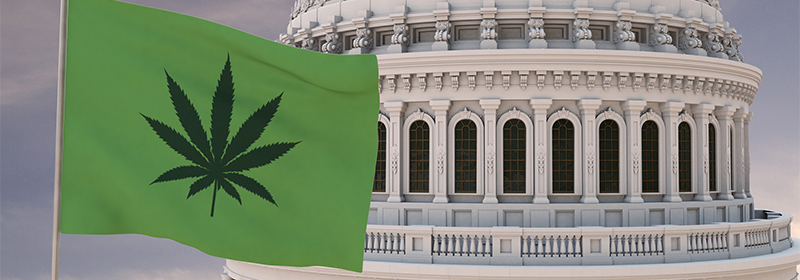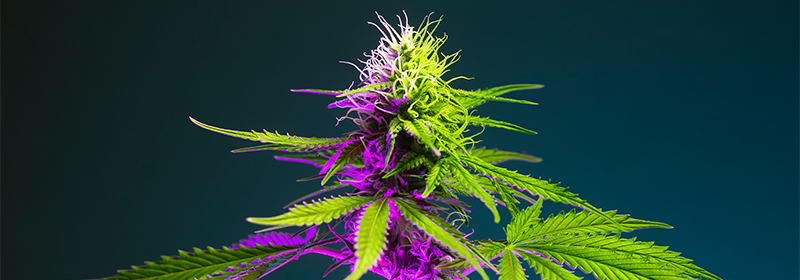The Legal Status of Cannabis

The progressive legalization of cannabis across the United States and internationally necessitates that individuals acclimate to these new regulations. Municipal and legal institutions must also adjust to the evolving legislative landscape. Despite cannabis remaining illegal at the federal level in the United States, hemp and its derivatives (such as cannabidiol, or CBD) are legally permissible.
When traveling, it is crucial to be aware of the specific cannabis laws in each country. State laws in the U.S. now vary significantly and tend to be more permissive than federal regulations. In this blog, we’ll briefly discuss the United States federal regulations, global legalization, and finally state level legalization in the United States.
Federal Regulation of Cannabis in the U.S.
The legal status of cannabis in the United States, the Controlled Substances Act (CSA) of 1970 empowers the federal government to regulate various drugs, including cannabis. The CSA categorizes substances into five schedules based on their medical use, potential for abuse, and safety. Schedule I substances, including marijuana, are deemed to have no accepted medical use and a high potential for abuse, classifying them alongside drugs like LSD and heroin.
The Drug Enforcement Agency (DEA) enforces the CSA, with responsibilities spanning from registration of handlers to prosecution of violators. Although some states have legalized cannabis for medical or recreational use, Delta-9-Tetrahydrocannabinol (THC) and its isomers remain Schedule I substances under federal law. However, FDA-approved drugs containing THC, like dronabinol, are in lower schedules.
The CSA’s definition of marijuana excludes hemp and its derivatives, provided they contain no more than 0.3% THC, as clarified by the 2018 Farm Bill. Rescheduling a drug is a complex process, involving extensive evaluation and public input, often taking years.
Recently, the DEA proposed moving marijuana to Schedule III, recognizing its medical benefits and lower potential for dependence. This move is significant but does not immediately resolve federal-state regulatory conflicts or fully integrate state-legal marijuana businesses into federal compliance frameworks.

Global Legalization and Decriminalization
The legal status of cannabis varies globally, reflecting a complex and evolving landscape. The United Nations drug agency reclassified cannabis in 2020, acknowledging its medicinal value. This change followed a recommendation from the World Health Organization, with significant support from countries like the U.S., the U.K., and Germany, although opposed by others like China and Russia.
Many countries now permit medical cannabis, including Australia, Canada, Germany, and the U.K. However, regulations on recreational use are more restrictive. The legal status of cannabis in nations like Canada and Uruguay have fully legalized cannabis, while others, such as Mexico and Georgia, allow possession but not sales. Decriminalization is more widespread, with countries like Portugal, Italy, and Jamaica reducing penalties for possession.
Travelers must stay informed about local cannabis laws to avoid legal issues, as regulations can differ dramatically even within countries.
Cannabis Regulation in U.S. States
Cannabis legalization in the U.S. began with California’s medical marijuana law in 1996, spurred by the AIDS crisis. Since then, medical cannabis has become legal in many states, with over 40 states legalizing medical use and over 20 states legalizing recreational use.

The legal status of cannabis within states vary, with some states requiring medical recommendations from healthcare providers. Physicians generally face limited liability for recommending cannabis but must adhere to professional standards and avoid violating federal laws.
The 2018 Farm Bill significantly advanced medical cannabis access by legalizing hemp-derived products, including CBD. This bill facilitated broader acceptance and use of medical cannabis across states.
Conclusion
Cannabis regulation is a dynamic and complex issue, with significant variations across federal, state, and international jurisdictions. While the U.S. federal government maintains stringent controls under the CSA, state-level legalization reflects a shifting landscape towards acceptance and regulation of cannabis. Globally, countries are increasingly recognizing cannabis’s medicinal benefits, although recreational use remains more contentious. Keeping abreast of evolving laws is essential for compliance and understanding the legal nuances of cannabis use worldwide.
Continue Your Education
To learn more about the healthcare applications, legal and ethical issues, history, and effects of medical cannabis, check out our Certificate in Medical Cannabis or take the individual course on Cannabis—Legal, Ethical, and Social Issues.
Medical Cannabis Series
Post 3 of 5







